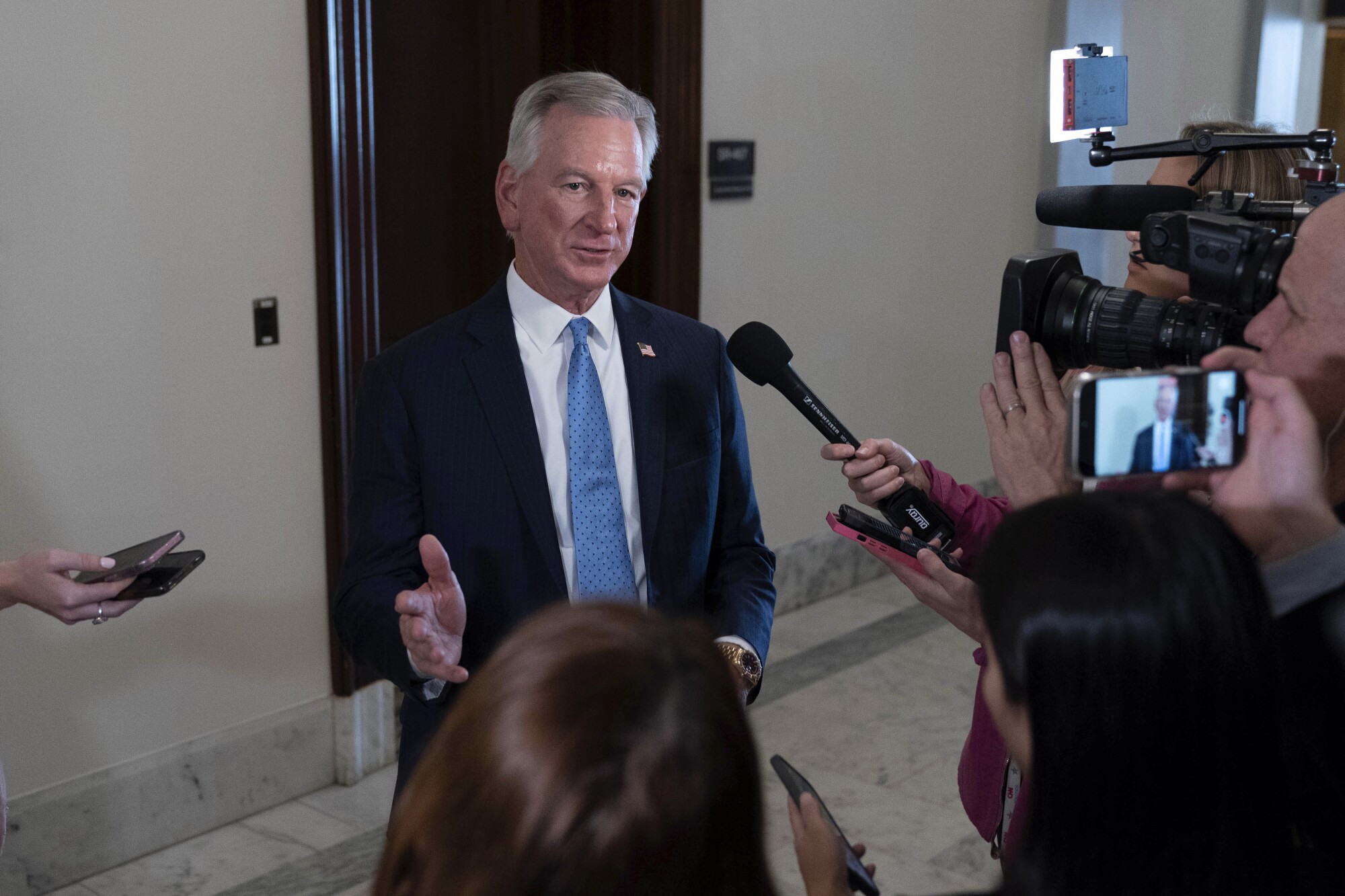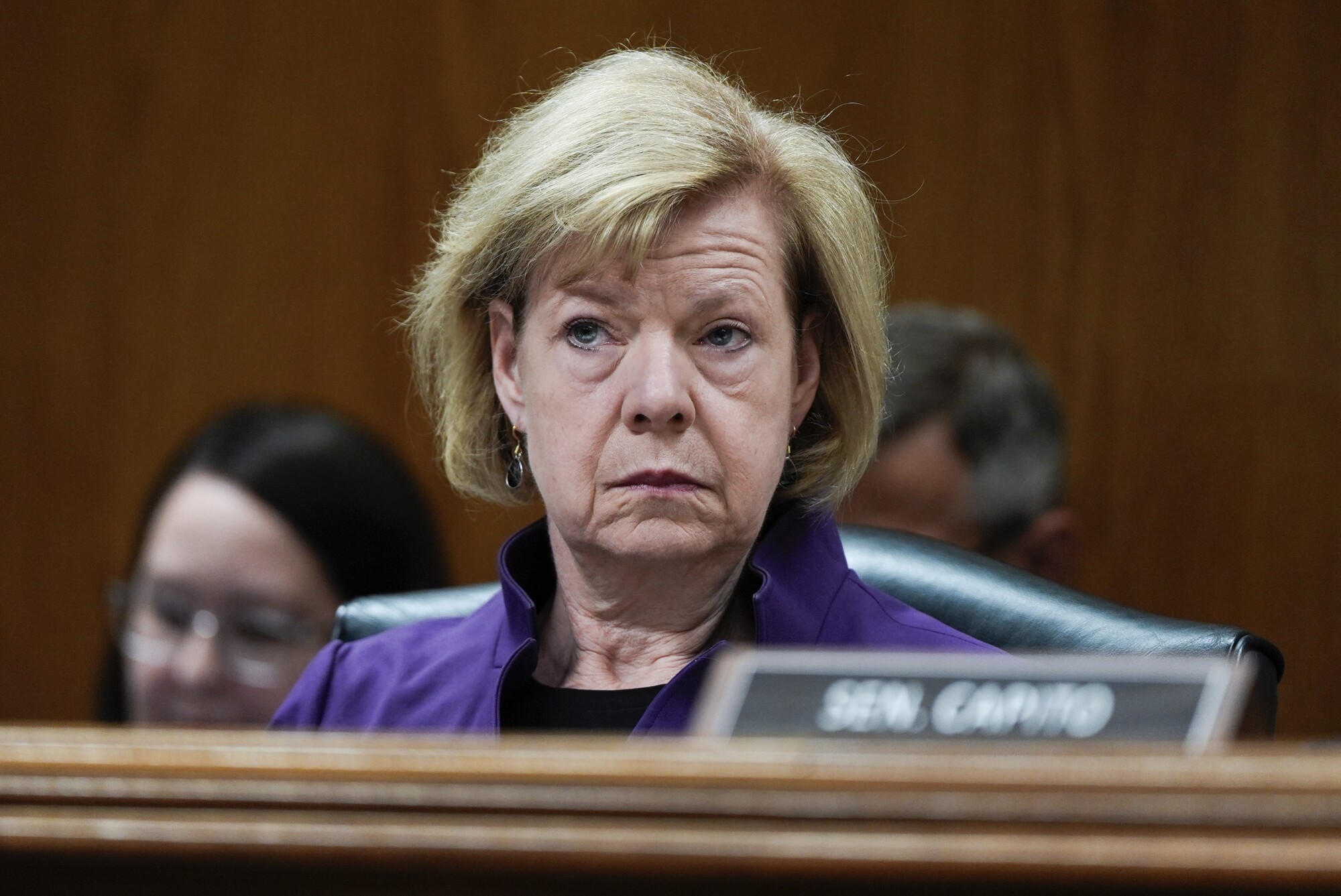Republicans and Democrats on Capitol Hill broadly agree that lawmakers deserve a raise, and they have a chance to do so soon through the appropriations process. But there is almost no chance they will.
Congress hasn’t given itself a pay increase since 2009, when lawmakers boosted their salary 2.8%, to $174,000. In the intervening 16 years, members’ purchasing power has declined by 31%.
“It’s too controversial,” Senate Minority Whip Dick Durbin told NOTUS.
Most members of Congress need to maintain two residences, cannot use official funds for all of their travel expenses and are barred from using health insurance available to other federal workers — with several choosing to sleep in their offices to save money. As a result, Capitol Hill tends to attract those who are independently wealthy, and many members who are not rich have privately bemoaned their salary.
Lawmakers on both sides of the aisle told NOTUS they think Congress should reassess how much members are paid — it’s just that during this highly volatile appropriations cycle, when an Oct. 1 government shutdown remains a real possibility, it would be a politically toxic move.
Sen. Tommy Tuberville, a devout conservative, said he’d be in favor of a cost-of-living increase. He told NOTUS it’s a “sacrifice coming up here, traveling twice a week, being away from your family,” and noted the hefty cost of keeping a residence in two places.
But when asked if it’s possible to address that issue in this round of funding, Tuberville was skeptical.
“It’s like everything else,” Tuberville said. “Everybody’s afraid they’ll lose a vote if they vote for anything.”
Tuberville is acknowledging what’s well known around Capitol Hill: No matter how much members of Congress want a raise, it’s not a good look for them to grant themselves one. The average national wage in 2023 was $66,621.80, according to the Social Security Administration, and there’s a pervasive sense that the American public isn’t sympathetic to lawmakers crying poor when they already make more than double their average constituent.
The top Republican and the top Democrat on the House Appropriations Committee, the panel responsible for lawmakers’ salaries, told NOTUS they aren’t aware of any conversations to increase pay this year.
“I don’t know anything about this,” Rep. Rosa DeLauro, the committee’s ranking member, said. Rep. Tom Cole, the committee chair, was also not aware of any such discussions.
Democratic Sen. Tammy Baldwin, an appropriator on the other side of the Capitol, told NOTUS they have “bigger fish to fry with the appropriations process right now.”
Still, it wasn’t that long ago that lawmakers in both parties were seriously discussing a pay bump. A December 2024 bipartisan appropriations package was going to make lawmakers eligible for a 3.8% pay increase, or about $6,600.
The provision seemed to be on track for passage with the rest of the spending bill until Elon Musk — then a top Trump ally charged with excising “waste, fraud and abuse” from the federal government — intervened. In an X post, Musk slammed the measure and incorrectly stated it would give members a $40,000 pay bump.
Republicans who were loath to upset Musk stripped the cost-of-living adjustment. Ironically, Musk changed his tune on the matter a few months later, posting in February that a congressional pay raise “might make sense.”
Given Musk’s change of heart — and his infamous fallout with the Trump administration — this appropriations cycle could have presented an opportunity for lawmakers to revisit their pay. After all, there is currently fresh momentum around a different, related reform — banning lawmakers from trading stocks. A bipartisan group of House members introduced the Restore Trust in Congress Act, which would block lawmakers from trading or even owning individual stocks, last week.
Upping member pay has often been raised in the same conversation as banning congressional stock trading, the argument being that if members make more money, they would be less incentivized to trade using inside knowledge or engage in nefarious financial activities.
“I’m in favor of that,” Speaker Mike Johnson told reporters of a congressional stock-trade ban in May. “I don’t think we should have any appearance of impropriety here. Okay. But the other side of it, some people say, ‘Well, look, the salary of Congress has been frozen since 2009. When you adjust for inflation, a member of Congress is making 31% less today than they made in that year.”
“It goes down every year,” he added. “Over time, if you stay on this trajectory, you’re going to have less qualified people who are willing to make the extreme sacrifice to run for Congress.”
Johnson isn’t alone in worrying about the cost of living dissuading well-meaning candidates from running for office. Proponents of increasing member pay have long argued it is a means to attract and retain more working-class talent to Capitol Hill.
“Most of us get paid less than our chiefs at this point,” Democratic Rep. Pramila Jayapal told NOTUS.
Jayapal — a leader on the stock trading ban and a proponent of a congressional pay raise — explained that Republicans have privately groused to her about their salaries this term. Despite the rare bipartisan agreement, however, they have not taken any steps to rectify the issue.
“I talked to several Republicans who were really pissed off about it, and I was like, ‘Well, why don’t you guys, like, put it in there?’” Jayapal said, referencing the upcoming appropriations package. “You control the thing.”
“But then, of course, like everything on the Republican side, there were complaints, but no action,” Jayapal said.
In 2022, the House did expand the list of expenses eligible for reimbursement. For example, lawmakers now have some allowance for lodging, meals and incidentals. However, the program has come under scrutiny because it does not require receipts, and Jayapal said it has not fully alleviated many of the costs of serving in Congress, anyway.
While many lawmakers come into Congress rich, others gain wealth while in office through outside means, like book deals, rental properties and more. But given that those outside sources of income are subject to public scrutiny, they aren’t necessarily a simple way for lawmakers to supplement their pay.
What’s more, Congress regularly fails to fund the government — signing the checks for millions of Americans’ salaries — until the last minute. And in the case of a shutdown, federal workers don’t get paid at all until funding is sorted. Some lawmakers suggested that perhaps Congress members should figure out how to fulfill their responsibility to fund the government before they fund their own pockets.
“I think I’m open to that,” said Sen. Mike Rounds, a member of the Senate Appropriations Committee. “But it has to be brought into context of actually getting people to get their jobs done on time for a change. I think if they’d actually do the work instead of continuing resolutions, it might make a difference in being able to explain it to folks back home.”
Sign in
Log into your free account with your email. Don’t have one?
Check your email for a one-time code.
We sent a 4-digit code to . Enter the pin to confirm your account.
New code will be available in 1:00
Let’s try this again.
We encountered an error with the passcode sent to . Please reenter your email.




